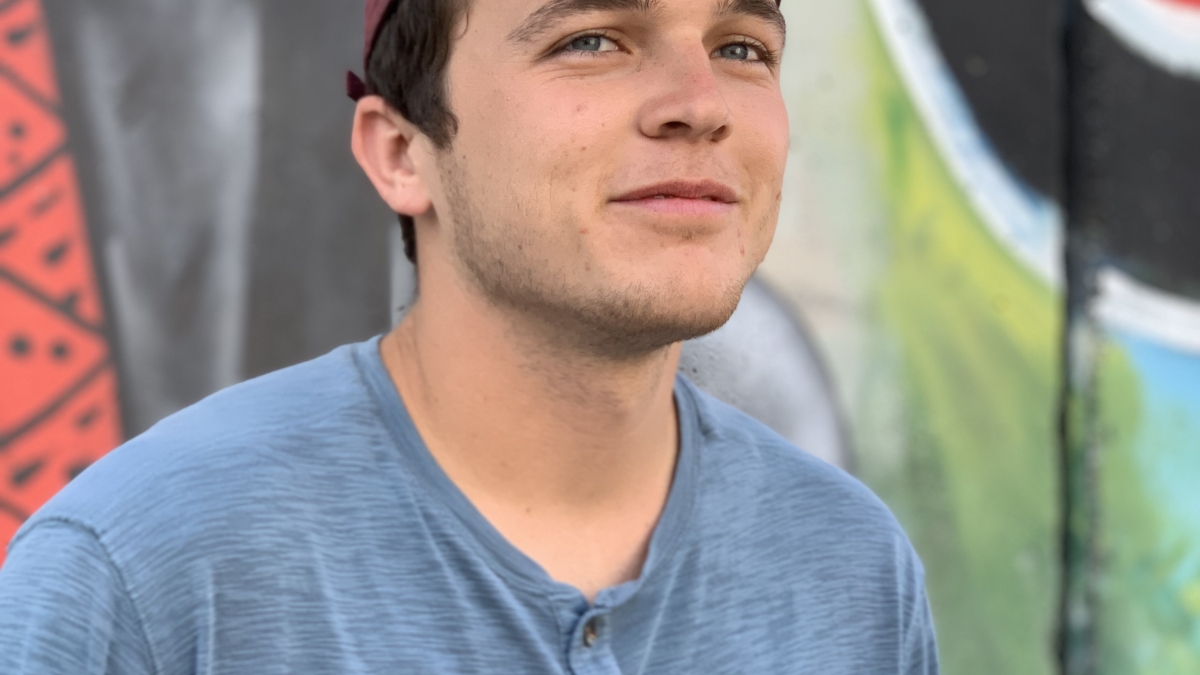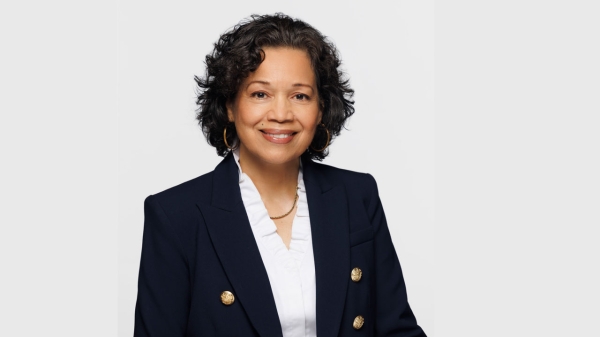Graduate develops a passion for politics and civil discourse

Justin Heywood will graduate with bachelor’s degrees in political science and civic and economic thought and leadership.
Editor's note: This story is part of a series of profiles of notable spring 2020 graduates.
Like many first-year college students, Justin Heywood wasn’t sure what he wanted to major in. After scrolling through the hundreds of majors offered on Arizona State University’s website, he chose the first one that really drew him in: political science.
“As a kid, I was always involved in politics,” said Heywood. “It wasn’t until probably my freshman year, second semester that I realized, ‘Wow, I chose right. This is exactly where I need to be.’ That experience came with the 2016 presidential inauguration.
The 2016 election was the first opportunity Heywood had to vote, and he was excited to be a part of democracy. He attended the presidential inauguration and the Women’s March, both of which opened his eyes to the work that needed to be done in politics — particularly as it related to bipartisanship and civil discourse.
“When I went to the inauguration I saw people pushing, shoving, fighting, spitting on one another because of their political views. We heard stories about friends and family disconnecting or removing them from social media just because of their political views,” Heywood said. “I thought that was something that needed to change.”
Back on campus, Heywood helped start a student organization called Bridge ASU, which hopes to foster civil discussions with people you don’t agree with.
“I think it’s vital; it’s critical that we engage in this type of discourse,” said Heywood.
His passion for politics and eagerness to be more involved led him to an internship as an Arizona state senate page. He was quickly promoted to a senate page lead where he had the opportunity to train and teach students how to assist the senators.
“It’s not the job description that’s really fascinating about this, but being able to understand and see politics happen firsthand, at a local level is an amazing opportunity,” said Heywood.
As a sophomore, Heywood discovered the School of Civic and Economic Thought and Leadership and attended two of its Global Intensive Experiences: one in India and one in Israel and the West Bank.
In 2019, when Heywood traveled to Israel and the West Bank, he had the opportunity to learn more about the deeply divided state by talking with former members of Israel's unicameral parliament and volunteering at a local kindergarten that taught Israeli, Muslim, Jewish and Palestinian students in the same classroom.
“From all the news we see of Palestinians and Israelis and their clashes and violent protests, I think it was crucial to see that the hate that we see on the TV and hear about in society is really built-in and it's learned,” Heywood said. “These students played as any students would, unaware of the cultural ramifications that are surrounding them. It was really cool to be able to witness that firsthand and be able to help the students throughout that day and just have a chance to play with them.”
Heywood’s travels didn’t stop at India, Israel and the West Bank. Through a Fulbright Summer Institute Program, he was able to study in Wales to learn about national identity and nationhood.
As far as after graduation, Heywood’s plans are unknown due to the COVID-19 crisis. He was selected as a Fulbright Scholar to teach English in South Korea, but with travel restrictions, this opportunity has been postponed and will start January 2021. In the meantime, Heywood is looking at working on a campaign or preparing for the general election by registering student voters.
Heywood will graduate with bachelor’s degrees in political science and civic and economic thought and leadership. The School of Civic and Economic Thought and Leadership caught up with him to ask him about his time at Arizona State University.
Question: Did you write a senior thesis?
Answer: Yes, so I did write my senior thesis with Dr. Zachary German and Dr. Jakub Voboril within the School of Civic and Economic Thought and Leadership and what we really looked at was campus expressions. So, “Do students feel comfortable sharing their views in a classroom setting or do they self-censor themselves due to their perceptions of other students, due to professors or administrators at the school?” Particularly we looked at politically oriented majors and nonpolitically oriented majors and whether they feel more or less comfortable speaking on controversial, hot-button, political issues. We found, largely, within our sample of approximately 350 or so students that this largely was the case — political science majors did tend to feel more comfortable sharing their views in the classroom. We took a look at the common perception made by conservatives that conservatives and Republicans are censored in the classroom due to fears of other students and repercussions by faculty members. We found this largely to be the case with 92% of very conservative students saying that they were likely to self-censor or feel reluctant sharing their views in the classroom. So, very interesting findings and if you want to read more feel free to look at it on the Barrett Honors Repository.
Q: If someone gave you $40 million to solve one problem on our planet, what would you tackle?
A: I think getting students engaged and at the table is vitally important, and so if I had $40 million I would probably start some sort of student think tank or incubator for students to engage and learn important leadership skills but also find funding for students groups to be able to advocate for issues that they’re passionate about. I envision this as being a bipartisan movement — students on the left, students on the right, and anywhere in between could critically engage with issues and learn how to engage their communities in meaningful and important ways. So that’s probably what I’d do with my $40 million if I had the chance. And pay off my student loans, of course.
Q: Which professor taught you the most important lesson while at ASU?
A: I would say the most important lesson I learned from Dr. Michael Mokwa. He’s a business professor in the School of Business — W. P. Carey — and I took a Tillman Leadership Scholar course with him across two semesters, three hours in the basement of the business administration building — which is kind of funny because we ended up liking “the catacombs” as we called it. I think he taught me a lot about leadership and how to develop and sustain teams when in a leadership role. I really use this in my role as president of Bridge ASU and really starting what we had from very little to know what we have being interviewed and stuff by, you know, popular news organizations and hosting — I think — really impactful events that many students enjoy. He taught me the most important lesson, and I really would have to thank him for all the leadership on that.
Q: What’s the best piece of advice you’d give to students who are still in school?
A: I would say the most important piece of advice is understanding that you can actually make a difference in some of the issues that we confront in our daily lives and even outside of them. So, when you’re watching the news and you’re hearing about this protest or this issue that’s really drawing your attention, some students it’s really easy to passively listen to news outlets and just say, “Ah, that’s an issue for when I graduate, that’s an issue when I’m that lawyer, I’m that doctor that I really want to step in and confront that issue” but really, it’s something that can be changed and really dealt with in the college environment.
Honestly, college is the best place to find other students that have similar views or to even confront those that don’t have similar views and being able to understand both of them and be able to come together and join in a common cause.
Next issue that you find, that you’re really passionate about, make a difference! Start a club. Start a protest. Really just do anything you can to create change in your community.
More Law, journalism and politics

CBS News president to give keynote address at Cronkite School’s spring convocation
Ingrid Ciprián-Matthews, president of CBS News, will serve as the keynote speaker at Arizona State University’s Walter Cronkite…

School of Politics and Global Studies director's new book explores mass violence
Why do people commit atrocities and why are certain groups, including religious and ethnic, more vulnerable to large-scale…

ASU faculty contributing to improvement of Wikipedia
Many academics have a love-hate relationship with Wikipedia. While the website has information about almost anything you can…